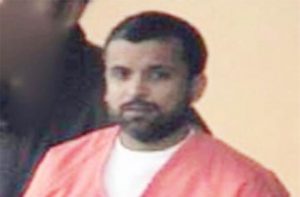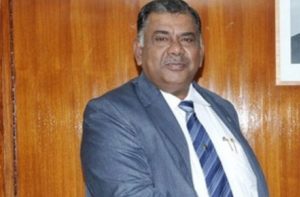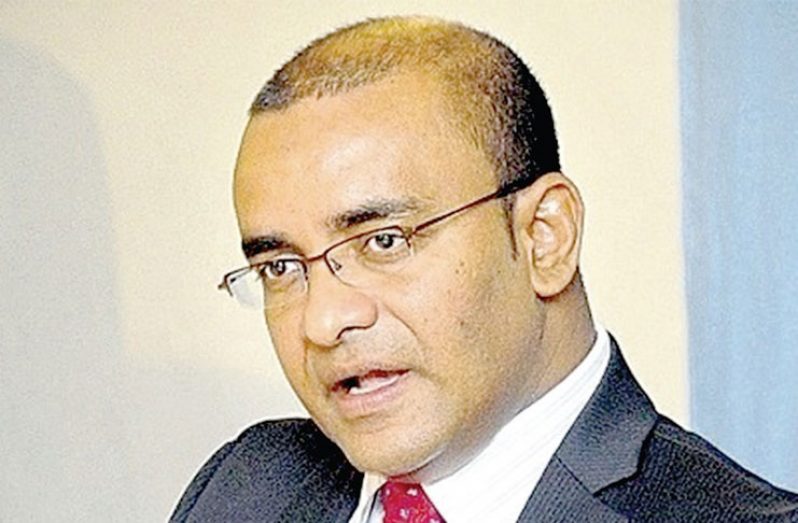…rejects allegations of threatening violence
ATTORNEY General, Basil Williams, has rejected what he deemed as libelous statements made by the People’s Progressive Party accusing him of threatening violence if house-to-house registration is not allowed.
He pointed to the party’s sordid record in government with three massacres and their alleged operation of several state-sponsored death squads.

In a statement on Tuesday evening, the PPP said it condemns the alleged threats of violence by Williams, noting that during a panel discussion organised by the American Chambers in Guyana (AmCham Guyana) on Monday, Williams threatened “dire consequences” if house-to-house registration is not allowed to proceed – fallaciously insisting that house-to-house registration is the only means of obtaining a credible Voters’ List.
But Williams, in denying the claims, said the PPP/C – a Marxist Leninist Party – should be the last to speak of violence. “The PPPC presided over the worst kinds of violence ever seen in the history Guyana or any CARICOM member state.” “Extra-judicial killings conducted by a variety of state-sponsored death squads including the black clothes squad, Gajraj squad, and the phantom squad.”
Williams added that massacres were also the order of “their misrule including the Lusignan massacre; the Bartica massacre and the Lindo Creek massacre.” He noted that the PPP/C handed over the public security of this nation to drug lords and enlisted convicted drug lord, Roger Khan, to fight crime on the state’s behalf. Khan himself had confessed in a full page advertisement in the local newspapers about this. “The PPP/C ‘s reign of terror left over nine hundred dead. In its wake included its own Minister, Satyadeo Sawh, for which no inquest or inquiry was held.”
Back in 2003-2006, convicted drug-trafficker, Shaheed Roger Khan, had set up a criminal network here including active policemen and a number of former ranks, ostensibly to go after criminals, but at the same time protecting his ‘narco’-trafficking interests. He was nabbed in neighbouring Suriname in 2006 while fleeing local police, and was later handed over to U.S. authorities.
Although the PPP government had sought to distance itself from Khan, the drug-trafficker had stated publicly in an advertisement in local newspapers that he had been fighting crime on behalf of the Bharrat Jagdeo-led government. Khan had also implicated former Health Minister, Dr. Leslie Ramsammy, in his escapades, and documents bearing the then minister’s signature authorising the purchase of a sophisticated wire-tapping device, were produced in U.S. courts during Khan’s trial.
Jagdeo was President of Guyana from August 11, 1999 to December 3, 2011, during which there were three massacres: Lusignan where 11 people were killed; Bartica where 12 were killed and Lindo Creek where seven miners were slaughtered. Besides, there were countless extra-judicial killings – with some activists estimating that around 400 Afro-Guyanese males were gunned down.

Williams said the PPP/C has a reason for distorting his account of the history of Guyana’s post-election violence under their watch. “They infiltrated peaceful protests marches with their agents provocateurs who went on a rampage of burning down Indo-Guyanese businesses and beating up Indo-Guyanese people.
They then used their propaganda machine to blame other political parties.” “No amount of propaganda could however change the CCJ’s refusal to grant coercive orders sought by the PPP/C against the President, the Parliament or GECOM,” Williams noted stating that CCJ President, Adrian Saunders, was very clear when he refused to fix September 18, 2019 as the date for elections or any date at all. “The learned Chief Justice also declined to give any timelines or deadlines to GECOM saying it would be presumptuous so to do,” Williams’ statement ended.



.jpg)








